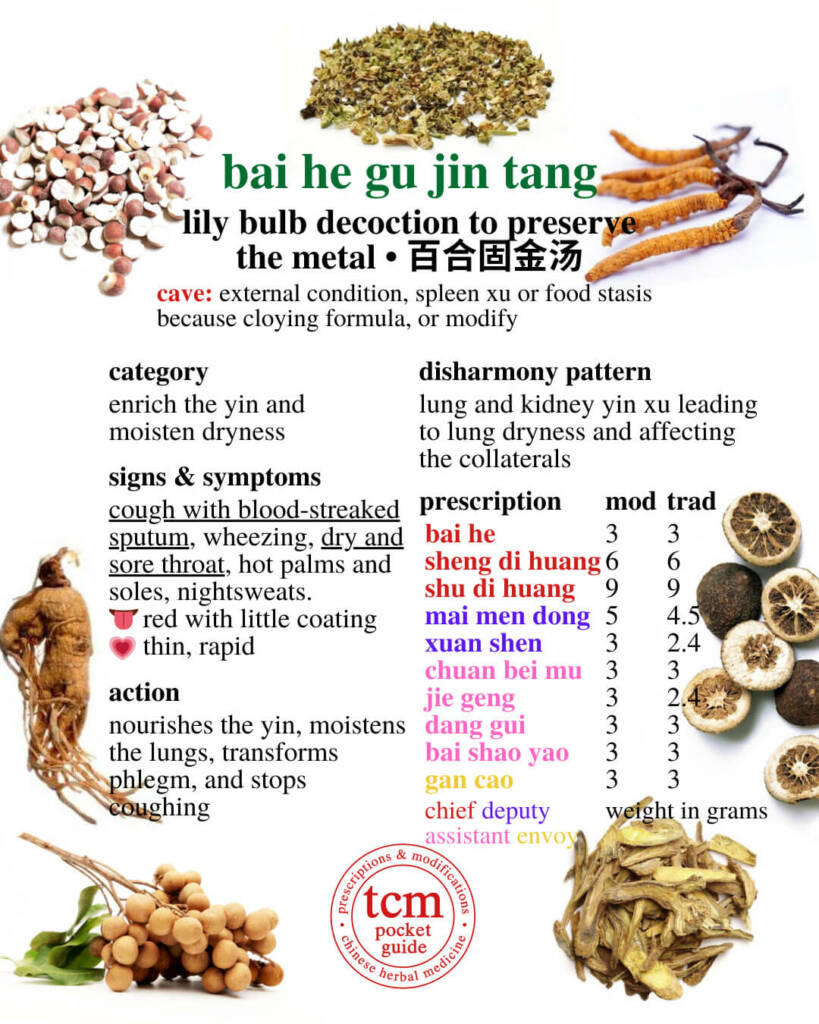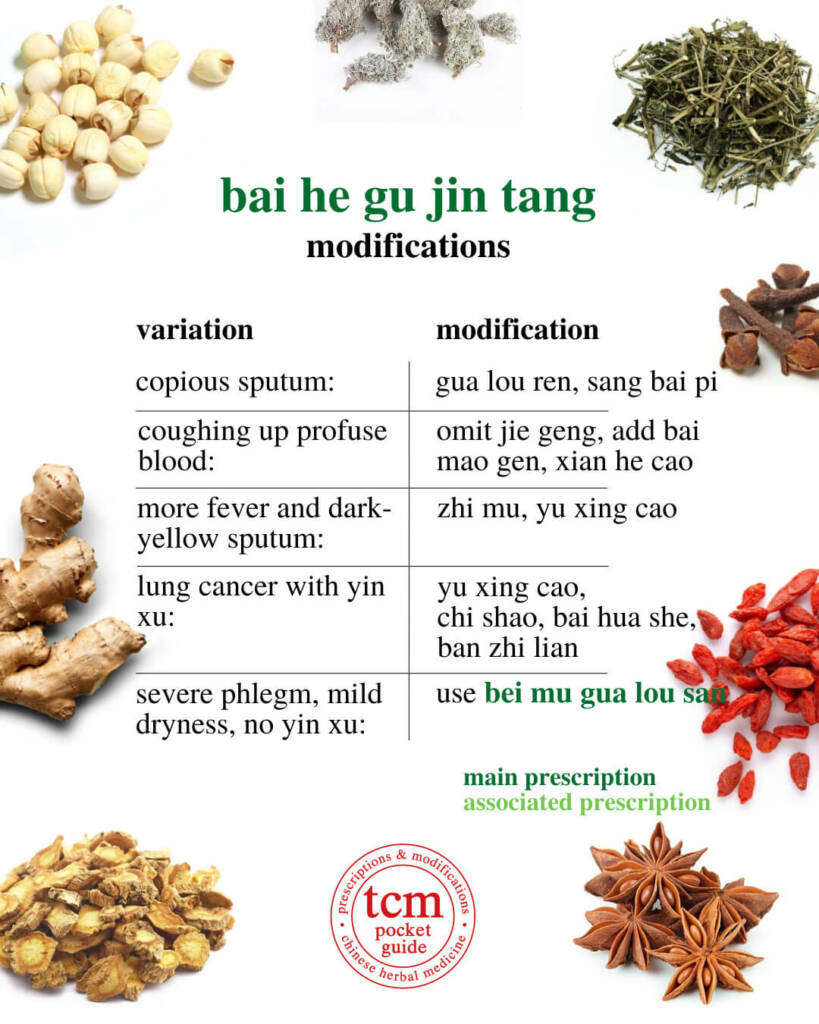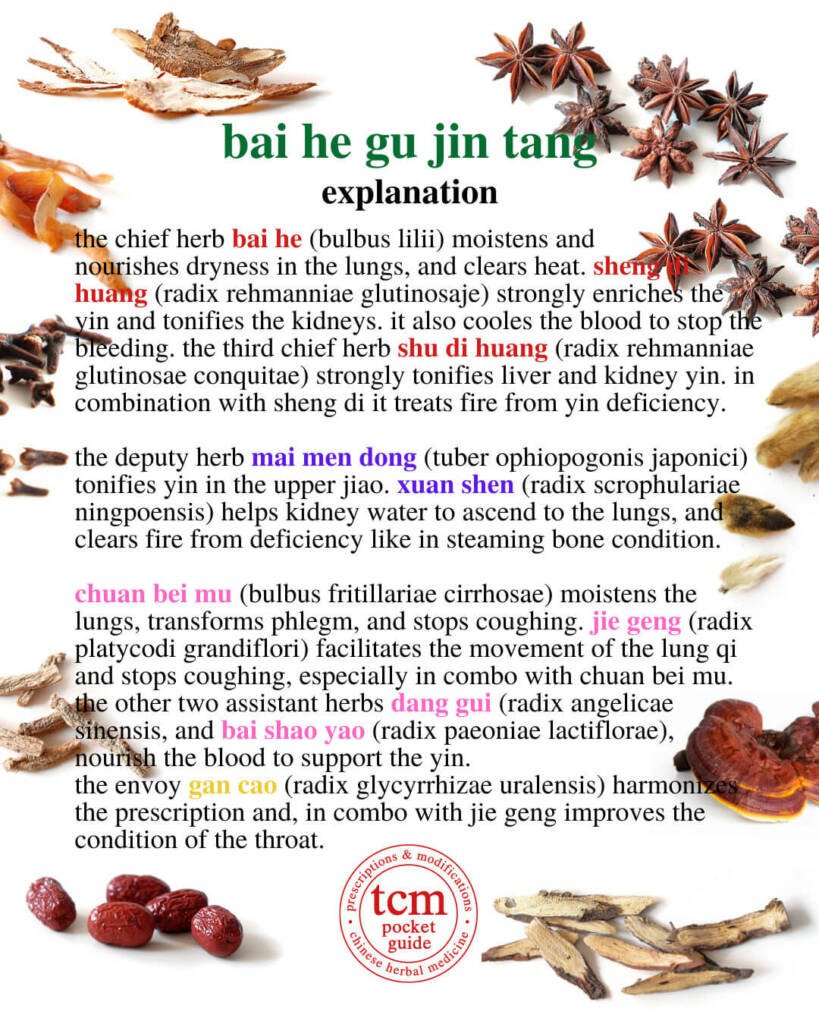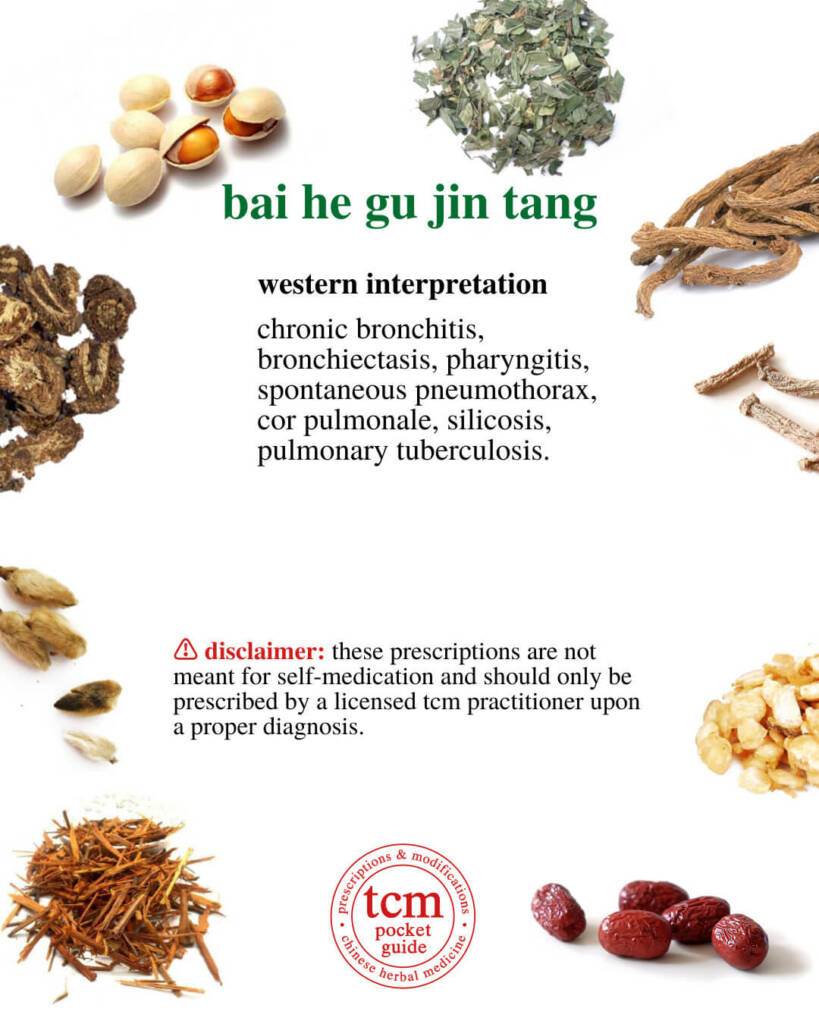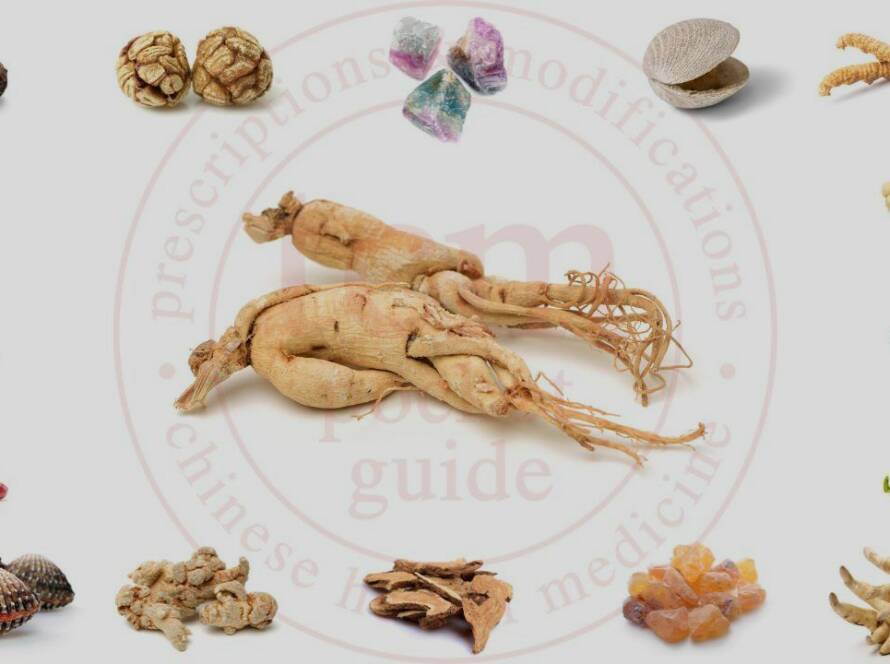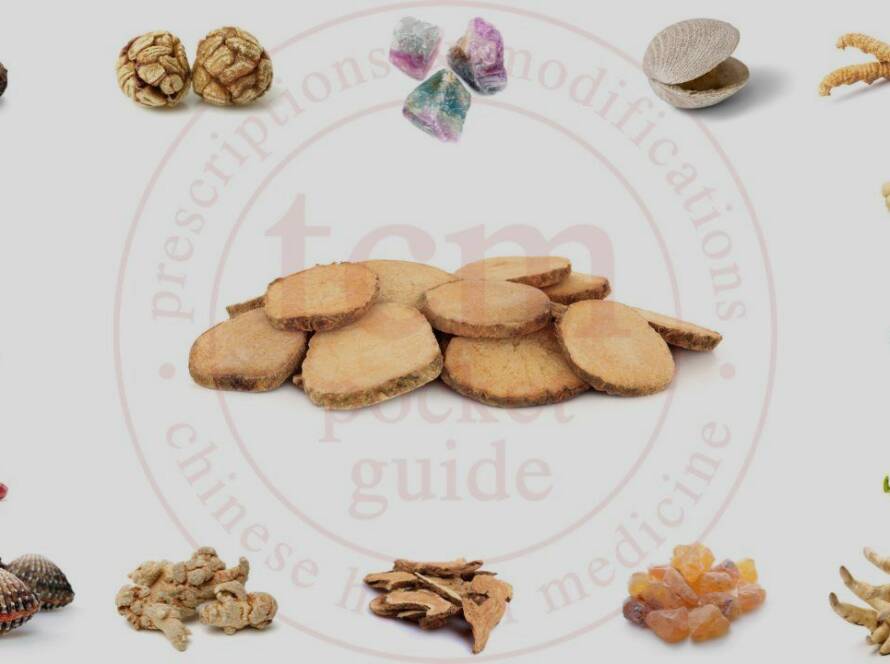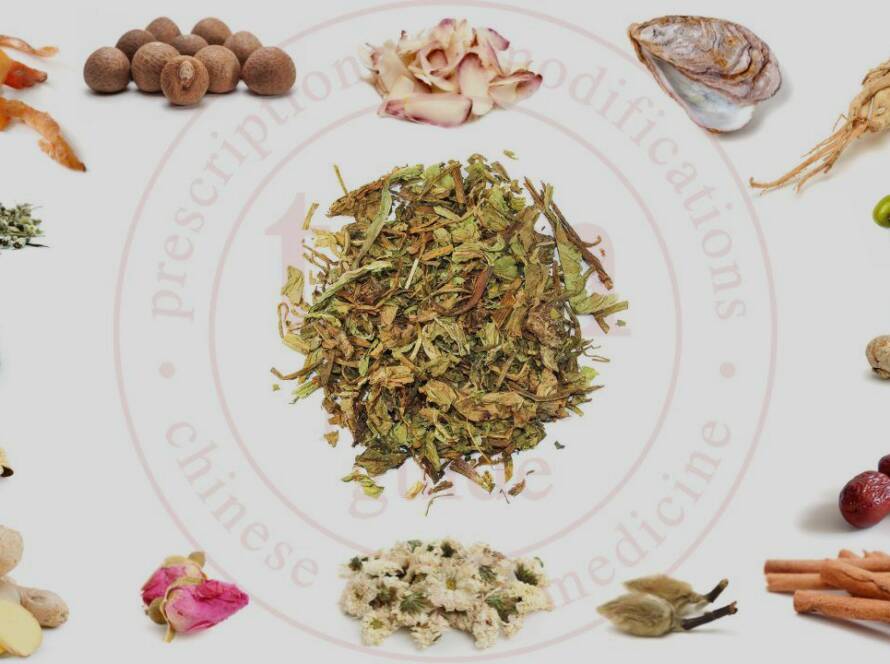bǎi hé gù jīn tāng is used for patterns with
lung and kidney yin xu leading to lung dryness and affecting the collaterals.
symptoms indicating the use of bǎi hé gù jīn tāng
cough with blood-streaked sputum, wheezing, dry and sore throat, hoarseness, hot palms and soles, night sweats, afternoon fever, low-grade fever, steaming bone, vivid dreams, fatigue, dizziness, restlessness.
western interpretation of bǎi hé gù jīn tāng
chronic bronchitis, cough, bronchiectasis pharyngitis, spontaneous pneumothorax, cor pulmonale, asthma, silicosis, pulmonary tuberculosis, chronic obstructive pulmonary disease (copd), tinnitus, hot flushes, dry nose, esophagal cancer, lung cancer, lower back bain, impotence, nocturnal emissions.
explanation of the mechanism
this is internal dryness of the lungs due to lung and kidney yin deficiency.
yin deficiency generates internal heat which rises to cause a dry and sore throat. yin deficiency may be caused either by a chronic disorder of the lungs which injures the yin and fluids, or by any condition which injures the kidney yin.
heat from deficiency “steams” the delicate, uppermost organ, which are the lungs, and interferes with the regulation of lung qi, producing coughing and wheezing. heat from deficiency also “scorches” the collaterals of the lungs, leading to blood-streaked sputum.
the other signs and symptoms are classic indications of heat from deficiency.
(bensky & barolet)

created with love in switzerland 🇨🇭
feel free to share this content:


